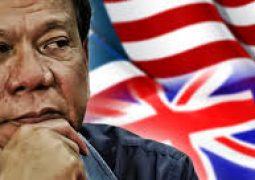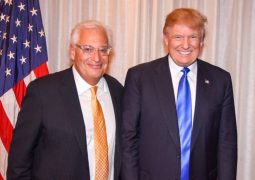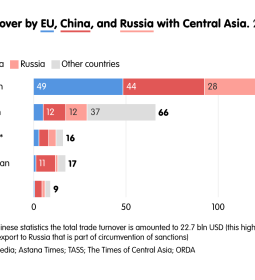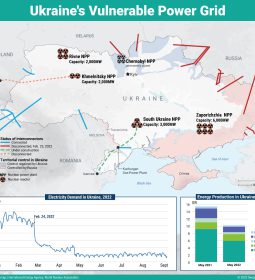Will China use its US$1.2 trillion of US debt as firepower to fight the trade war?
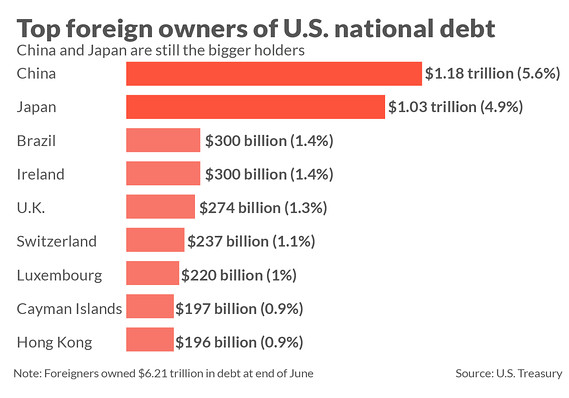
- Fears are mounting among investors and analysts of potential adverse effects on global economic growth as China promises to strike back after US raised tariffs
- Uncertainties on how escalating tensions will unravel have hurt markets this week
Topic | China economy
Karen Yeung
China’s promise to strike back after US President Donald Trump increased tariffs on US$200 billion worth of Chinese goods on Friday has heightened uncertainty on how escalating trade tensions between the two countries will unravel and raised fears among investors and analysts of worst-case scenarios that will hurt global growth.
If China is unwilling to play ball on Trump’s terms, Beijing, analysts said, not only could retaliate by imposing countervailing tariffs of its own, but also has a range of financial firepower at its disposal to punish the US.
For starters, China could strike back by dumping its vast holdings of US government debt. Flooding the market with Treasuries would push down US bond prices and cause the yields to spike.

That would make it more costly for US companies and consumers to borrow, in turn depressing America’s economic growth.
Cliff Tan, East Asian head of global markets research at MUFG Bank, said it was unlikely that China would choose to scale back its holdings in US Treasuries sharply as that would hurt its own interests and fuel “extreme” market volatility.
Dumping treasuries would be an ineffective weapon for China as that would send yields higher and hurt the positions of their own holdings in treasuries Cliff Tan, MUFG bank
“Dumping Treasuries would be an ineffective weapon for China as that would send yields higher and hurt the positions of their own holdings in Treasuries,” said Tan.
“If China got out of US dollar assets completely, it would be very risky to them because of extreme market volatility.”
The trade war had seemed on the cusp of ending until Sunday, when Trump threatened to raise existing tariffs in a tweet, sending Chinese stocks and its currency lower this week.
The benchmark Shanghai Composite Index touched its lowest level in 10 weeks while the yuan is heading for its biggest weekly decline since mid-2018.
Minutes after the US raised tariffs from 10 per cent to 25 per cent on Friday, the Ministry of Commerce reiterated its tough stance in the trade war, saying in a statement, “we’ll have no choice but to take the necessary countermeasures.”
Nonetheless, the statement said Beijing remained hopeful to resolve the problem “through cooperation and negotiations”.
Vice-Premier Liu He had been in Washington since Thursday for two days of trade talks, which ended late Friday morning without a resolution.
Up until 2016, the People’s Bank of China was buying US dollars from exporters while selling yuan to them to prevent the Chinese currency’s excessive appreciation.
Most of China’s US$3.1 trillion in foreign exchange reserves, the world’s largest, is parked with US Treasury securities, which have a safe haven status.
China needs the US dollar assets as a safety buffer should it need to bail out the domestic banking system or to support the yuan through foreign exchange intervention.
Dumping Treasuries is unlikely to be an effective move for trade war negotiations. China is unlikely to find alternative investment options given that it holds so much Treasuries. Betty Rui Wang
Although it has cut its holdings in US Treasuries in recent years, it still takes the top spot among foreign creditors at US$1.123 trillion, followed by Japan with US$1.042 trillion.
The amount, however, is only about 5 per cent of the US’ total debt of US$22 trillion owed by the federal, state and local governments as of February. Of the total, more than US$5 trillion is actually owned by the federal government in trust funds dedicated to social security.
Much of the rest is owned by individual investors, corporations and other public entities, including the Chinese government.
Although US$1.123 trillion is by no means a small amount, it accounts for only about 5 per cent of the US’ national debt, and it remains to be seen if China’s paring back of its holdings would lead to any effective results.
“Dumping treasuries is unlikely to be an effective move for trade war negotiations. China is unlikely to find alternative investment options given that it holds so much,” said Betty Rui Wang, senior China economist at ANZ Bank.
Still, if China decided to sell US Treasuries and bought oil, oil producers who receive the US dollars may channel them back into US Treasuries, which would not increase China’s leverage to protect its interests.
MUFG’s Tan said a better option for China would be to allow the yuan to depreciate against the US dollar to offset the negative impact of the tariffs.
The US had demanded China to limit the yuan’s depreciation, and thus the competitive advantage of China’s exporters.
Analysts had previously said the condition was seen by Beijing as an acceptable term to end the trade war.
But this week’s decline in the yuan’s exchange rate dashed hopes that Beijing would fulfil US demands to keep its currency stable at all costs.
“If there is no currency stability pact negotiated, then this is certainly one way China can prepare for what we think is going to be pretty serious escalation of tariffs,” Tan said.
The latest round of tariff increase to 25 per cent by the Trump administration now matches the rate imposed on a prior US$50 billion category of Chinese machinery and technology goods. Trump has also threatened 25 per cent tariffs on possibly another US$300 billion worth of Chinese goods.
- Previous Trump warns China to reach a trade deal now, or face a ‘far worse’ one if I get re-elected
- Next Houtie’s revenge: Saudi Arabia says oil stations attacked by armed drones





